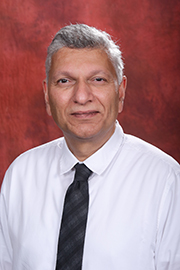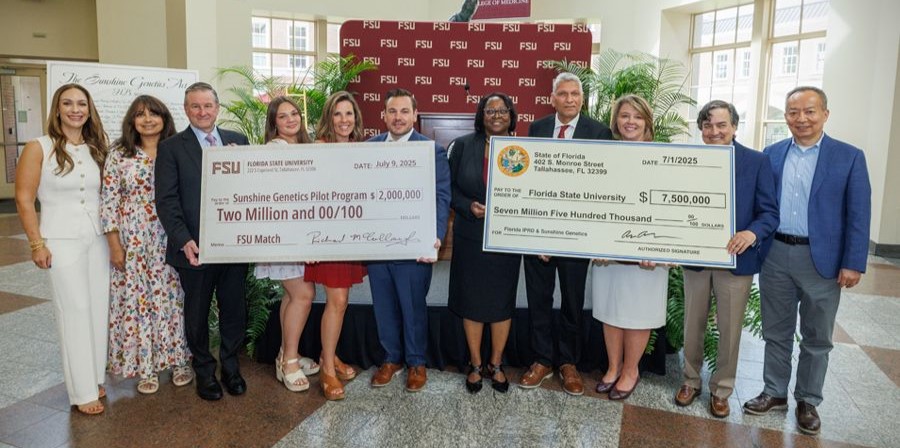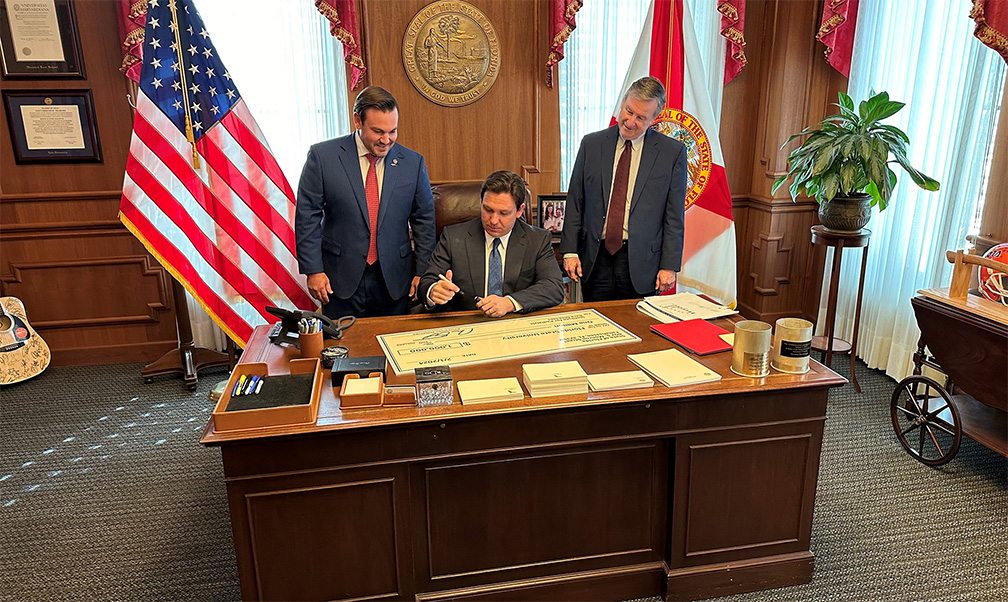

Message from Director Pradeep Bhide, Ph.D.
The Institute for Pediatric Rare Diseases (IPRD) takes a comprehensive and strategic approach for developing innovative technologies for the diagnosis and treatment of a broad range of rare diseases. The Institute’s programs include a pediatric health center, genomics research and diagnostic services, graduate program in genetic counseling and rare disease research initiatives. Its multidisciplinary team of clinicians and scientists strives to develop innovative solutions for the treatment and management of rare diseases through research, public outreach and training the next generation of physicians, scientists, genetic counselors and other healthcare professionals.
 Message from Dean Alma B. Littles, M.D.
Message from Dean Alma B. Littles, M.D.
The Institute for Pediatric Rare Diseases (IPRD) represents an innovative approach in pediatric care by combining cutting-edge clinical practices with state-of-the-art research. IPRD’s goal is to be a leader in patient care, genomics research, education, and public awareness to meet the urgent needs of children suffering from rare diseases. Please join me in supporting IPRD as it embarks on a journey of reimagining healthcare by bringing precision medicine to all Floridians, particularly those in rural and underserved areas by capitalizing on FSU’s statewide network of healthcare professionals. The IPRD remains an integral part of the College of Medicine’s mission of training the next generation of physicians, scientists, and healthcare professionals to meet Florida’s growing and unique healthcare needs.

Florida Governor Ron DeSantis signed the State budget appropriation for the establishment of The FSU Institute for Pediatric Rare Diseases in July 2023. The appropriation was championed by Florida Representative Adam Anderson (R-Palm Harbor).
Richard Nowakowski, Ph.D., was appointed the Founding Director of the Institute and Pradeep Bhide, Ph.D., the Executive Director. The Institute established a Research Advisory Council in July 2023 and the inaugural round of Research Grants to support rare disease research at FSU was announced in October 2023, marking the Institute’s first steps toward its mission.
FSU formally announced its groundbreaking Institute on February 1, 2024, during the FSU Day at the Capitol celebrations, and named Dr. Pradeep Bhide its inaugural Director. Under Dr. Bhide’s leadership the Institute is poised to drive transformative progress in pediatric rare disease research, clinical care, and education. The Institute will bridge critical gaps in pediatric rare disease care by striving to reduce diagnostic delays, improve health outcomes, provide support to affected families, and advocate for public policy changes.

What is a Pediatric Rare Disease?
Pediatric rare diseases are medical conditions that affect a relatively small number of children compared to more common diseases. In the United States, a rare disease is typically defined as one that affects fewer than 200,000 individuals.
What is the Prevalence of Pediatric Rare Diseases?
The landscape of pediatric rare diseases is characterized by its distinctiveness. There are thousands of distinct rare diseases, each with unique genetic, clinical, and pathological features. The prevalence of individual rare diseases can vary widely. Collectively, they affect 30 million or 1:10 Americans.
What Causes Pediatric Rare Disease?
Approximately 80% of rare diseases have a genetic cause such as a variant, or change, in a gene or chromosome. Variants can be inherited from a parent or occur during an individual's lifetime. There are several rare diseases that do not have a known genetic cause. These include infections, autoimmune diseases, certain forms of cancer, diseases caused by exposure to toxins or other environmental factors, and some conditions which have multiple possible causes.
What is “Diagnostic Odyssey”?
Pediatric rare diseases often present diagnostic challenges due to their rarity, variability in symptoms, and lack of awareness among healthcare professionals. Accurate and timely diagnosis is critical for effective treatment and management. Individuals with undiagnosed genetic diseases often face an uncertain and unpredictable journey, referred to as a "diagnostic odyssey." For one-third of individuals with rare diseases, getting an accurate diagnosis can take up to five years. For rare diseases that have a genetic basis, genetic screening can offer timely accurate diagnosis.
Florida is a strong supporter of rare disease research and awareness. Florida Senate Bill 272 was signed into law by Governor Ron DeSantis on June 21, 2021, to establish section 381.99, Florida Statutes — the Rare Disease Advisory Council (RDAC). Florida became the 19th state to pass legislation creating an RDAC. The RDAC is composed of representatives from state agencies, health care providers, researchers, rare disease awareness groups, insurance, and pharmaceutical industries, as well as individuals with rare diseases and caregivers of individuals with rare diseases.
Florida Representative Adam Anderson was instrumental in establishing the Rare Pediatric Disease Research Grant Program at the Florida Department of Health to provide the first-ever funding opportunity to the state of Florida for innovative approaches to research and treatment for rare pediatric diseases. Representative Anderson's leadership and tireless efforts assure the promotion of Florida at the forefront of Rare Disease research.
Florida is among eight states that expanded Medicaid coverage to include rapid whole-genome sequencing for infants with potentially rare diseases. Representative Anderson led the campaign for Florida Medicaid to cover whole genome sequencing in the 2023 State budget. The cost to Medicaid for providing the screening to 5% of babies in neonatal intensive care units each year is estimated to be about $3.3 million, with potential savings exceeding the costs. A 2020 study called Project Baby Manatee, conducted by Nicklaus Children's Hospital in Miami, supported the potential cost savings and the benefits of rapid whole-genome sequencing. Private insurers provide limited coverage of the sequencing.
Representative Anderson sponsored Florida House Resolution 8005 recognizing August 10, 2023 as "Tay-Sachs Disease Awareness Day" in Florida, and Florida House Resolution 8049 recognizing February 28, 2023 as "Rare disease Day" in Florida. Both resolutions were adopted by the Florida House of Representatives on April 26, 2023.
At the National level, Florida Congressman Gus Bilirakis (FL District 12) has championed the Orphan Drug Act, which has transformed the rare disease drug discovery and development landscape in the US. Whereas the FDA had approved only 38 drugs for the treatment of rare diseases until 1983, it approved 1,122 rare disease drugs between 1983 and 2022.

